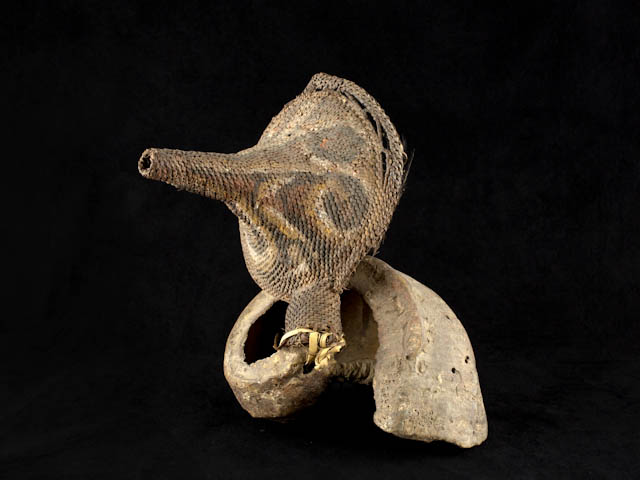Talipun, or Talipoon, shell masks are a form of currency used by the Boiken people in Papua New Guinea. Traditionally, they are made by severing the apex of a Turbo Marmoratus (green turban) snail shell, then attaching woven fibers made from vines and reeds. While other Talipun are more human-like, this particular piece is very abstracted, focusing on the hollow center of the woven section, like a nose. Talipun masks have both monetary and cultural significance, serving as a commodity, but also a representation of a transaction. Most commonly, they have been used as bride-price, where relatives of a groom provide compensation for the bride to her family, and the mask is a symbol of the power and wealth of the match. Papua New Guinean societies are primarily gift economies, so the shells serve to document and honor relationships. However, they can sometimes be given at the end of conflicts or battles as compensation. They have a sort of dual purpose as commodity and money. Talipun are an indigenous form of currency used for hundreds of years that do not have their origins in any sort of barter system, yet again standing in opposition to traditional economists.
file:///Users/zoraduquette-hoffman/Downloads/zora%20d-h%20annotated%20object.pdf : Talipun/Talipoon Shell Mask
Comments are closed, but trackbacks and pingbacks are open.